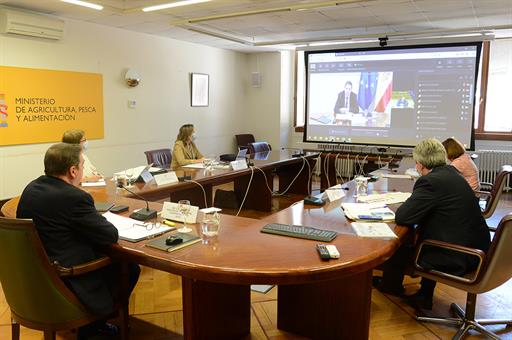The minister stressed the need to remain "united and on the same page" in order to defend the fishing interests of all Member States.
Today Luis Planas met by video conference with the European Union Commissioner for Fisheries, Virjinijus Sinkevicius, and the EU Fisheries Ministers from 10 Member States to analyse the status of the consultations carried out in recent months in the framework of the Trade and Cooperation Agreement signed with the United Kingdom after Brexit.
Several rounds of consultations were held in February to reach an agreement on setting TACs and quotas for stocks of species present in both EU and UK waters for the current year and for 2022 in the case of deep-sea species.
Currently, there is a consensus on TAC figures for virtually all stocks, which largely follow the scientific recommendations provided by the International Council for the Exploration of the Sea (ICES).
Of particular interest to Spain are the prior agreements regarding maintaining 2020-level TACs for red sea bream in the Cantabrian Sea and cod stocks in the west of Scotland and the Celtic Sea, which will allow Spanish fishing activity to continue at levels similar to previous years, including the coverage of by-catches to be landed due to the landing obligation.
However, there are discrepancies over the flexibility that the UK wants to introduce in terms of setting and using some quotas, which, according to Planas, "must have a common and harmonised approach".
The UK has proposed adding new flexibilities between areas, mainly between the North Sea and the west of Scotland, in the use of some quotas for demersal species, and also for mackerel.
Non official translation





